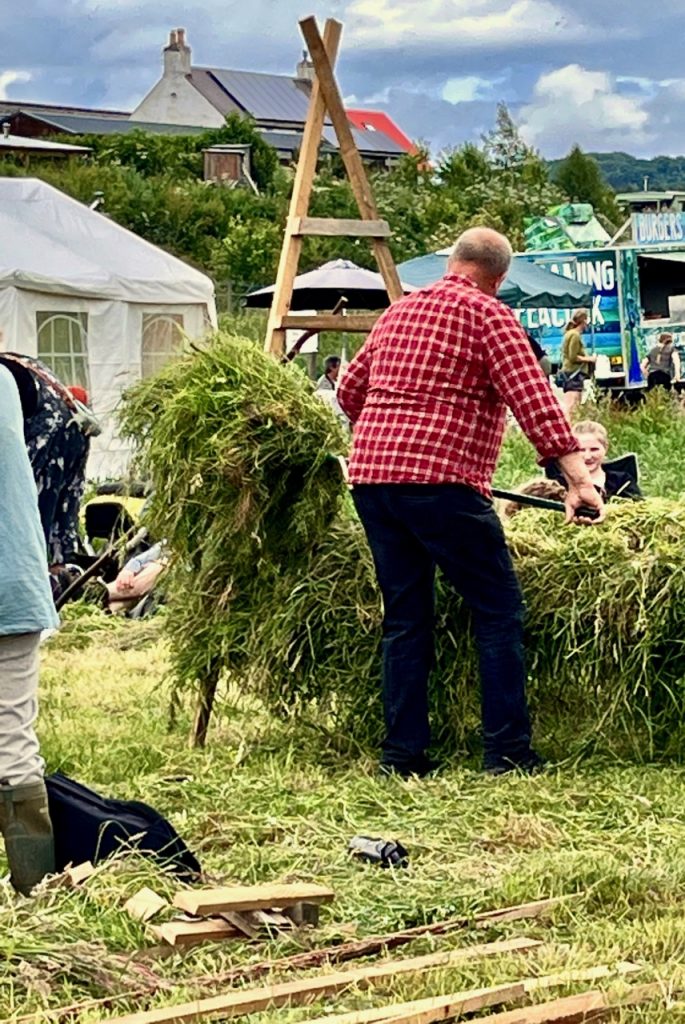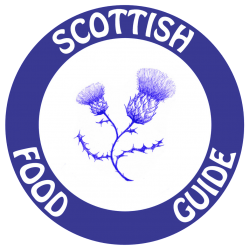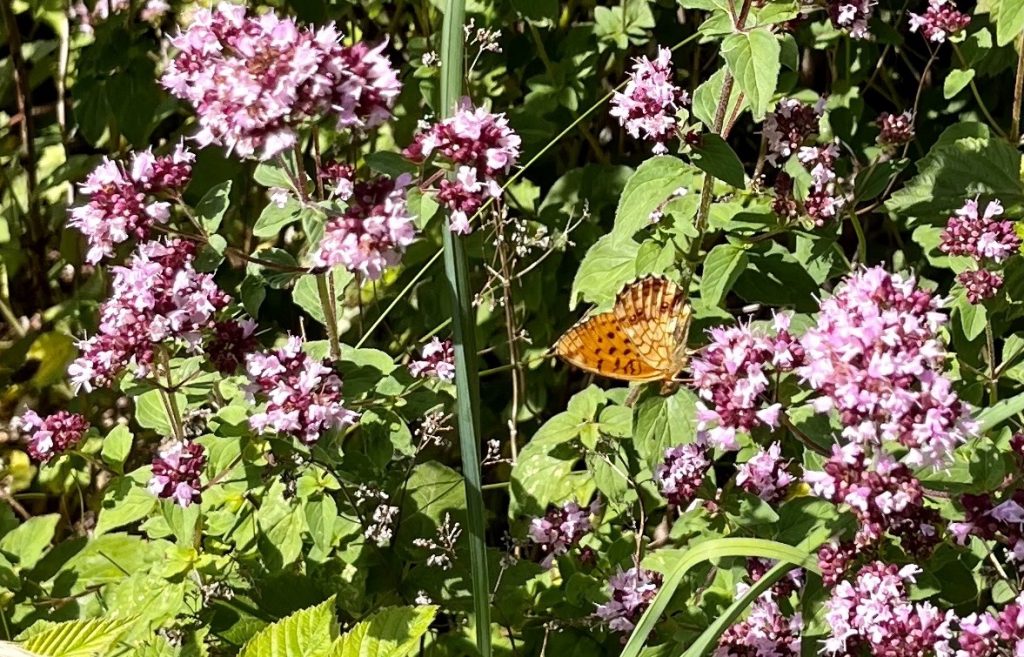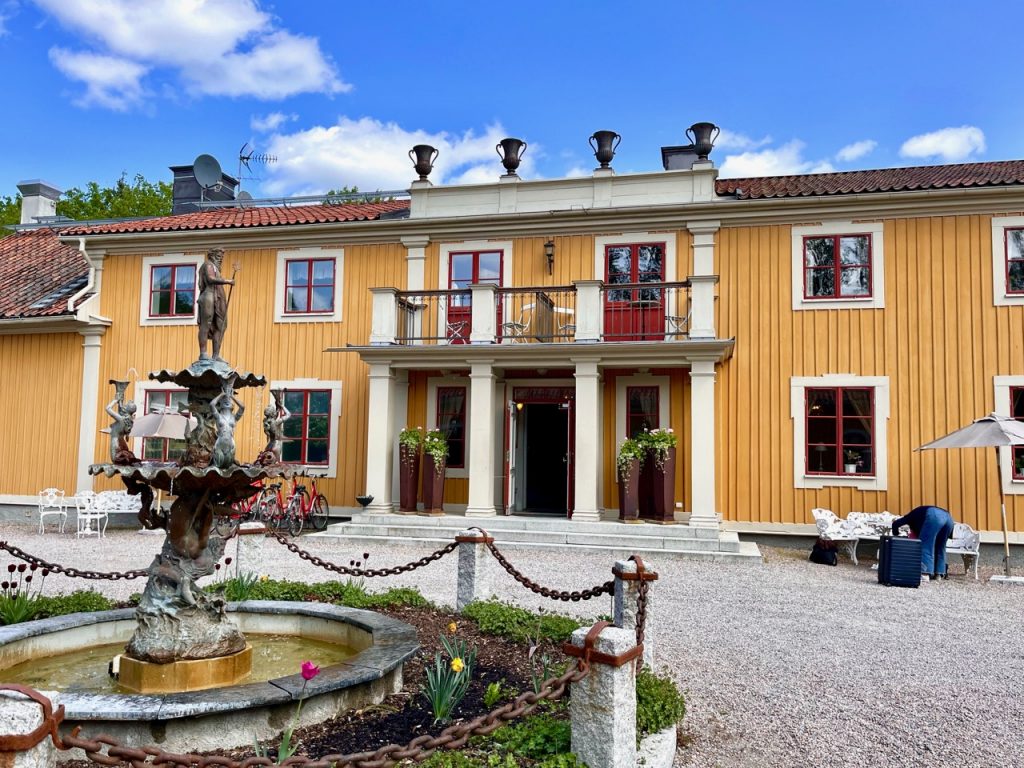Since last I wrote, I’ve presented in a zoom lecture followed by a live event at Hadrian’s Wall on Roman Influence on British Cuisine – A Culinary Journey. Bosse and I really enjoyed undertaking the considerable in depth research and hopefully there will be future opportunities to give an action replay. For now, there is much Roman influence I’ll hang on to – but I’ll skip the boiled flamingo!
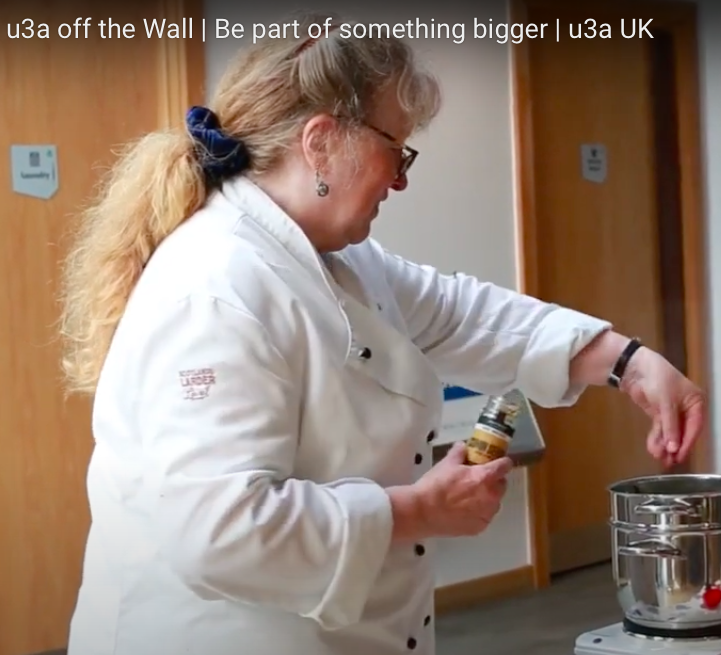
Historians may argue whether it was the Celts or the dreaded midges that sent the Romans packing or perhaps the legionnaires just wanted home for some of Mamma’s cooking. When the Romans occupied Britain, their native heath already had a highly sophisticated agricultural system and was seen as a noble way of life. Seas were their highways and ships their juggernauts. They may have moved vast quantities of food across the Empire but it was high quality – not pumped with artificial preservatives, sweeteners or palm oil as so much is today.
The climate was considerably warmer than now however it also cooled by the end of their occupation and may well have contributed to their departure, unable to grow the same volume of their favoured foods, in particular wheat imported from northern Africa (as not much was grown in UK) to satisfy their army’s appetites. Due to the warm temperature, cattle and other ruminants could graze outdoors all year round so there wouldn’t be the same urgency for gathering winter feed. A significant difference in food production and an indication global weather cycles are not a new phenomenon.
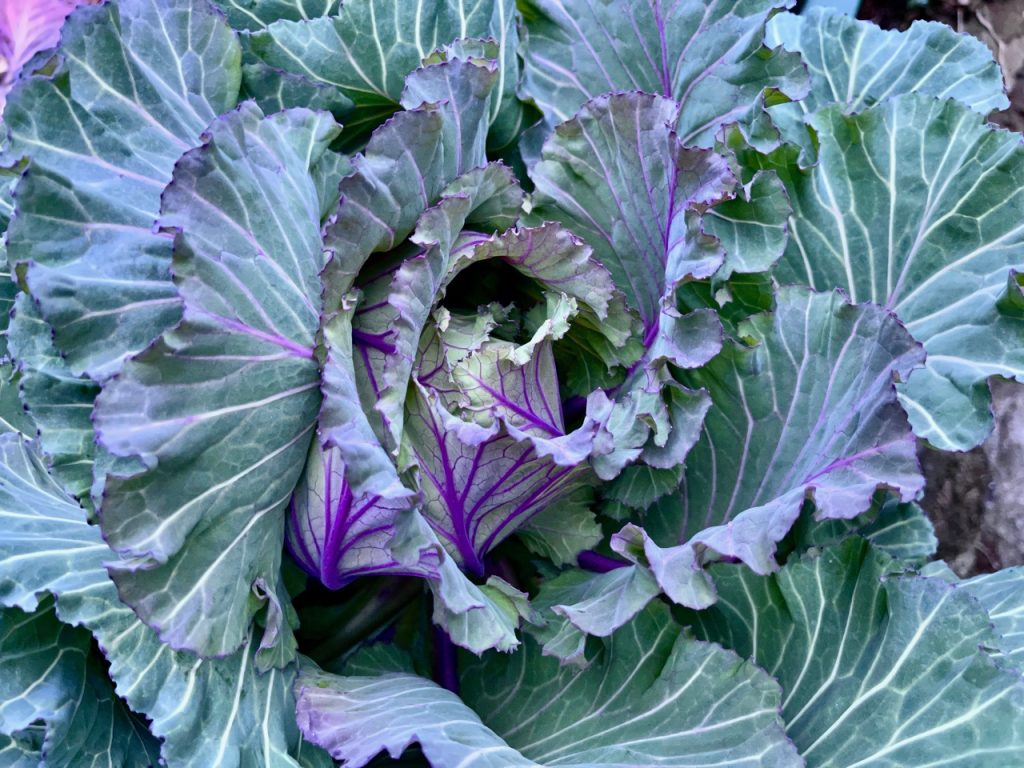
The Romans were well aware of the correlation between healthy eating and healthy bodies – preventative medicine we would do well to remember today. My recipes included: heritage beet soup with North Ronaldsay mutton, duck with plum sauce, focaccia with tapenade, Shetland kale with dates & apple, crowdie with honey on bannocks, and poached pears in white wine with spices.
It was a hectic May with a number of Scandi events too, the first being Living off the Land – a must read for pig lovers in particular! There has been a range of interesting Slow Food engagements including an online Biodiversity Core Group and Scania Board meeting (Bosse is on the board and I go along as a groupie). Leader of SF Scania, Annette, gave me a super book she had written on preserves, brimming with useful tips.
Next up was Bosse’s Linderödsvin AGM at Gävle, famous for having the biggest straw Christmas billy goat in Sweden. A precursor to Santa, the Julbock is created annually – a prime target for ne’er-do-weels and high jinks but last year it endured to bring festive cheer. Well worth a google if you haven’t heard the tale.
Our journey north took all day and we planned an overnight stop near Gävle in readiness for the meeting the following day. After five hours of scenic driving, desperate for a pit stop, I pronounced we were taking off at the next sign for food. Seconds later was a banner for a certain burger chain but even I wasn’t that desperate. I draw the line. Next left, a farm café sign in attractive black ironmongery. The lane rapidly deteriorated, narrowing, rutted and wooded and I was beginning to have second thoughts. On reaching a fork in the track, there was a wooden post, far scruffier and renaming the ‘café’ as ‘abattoir & coffee.’ No thank you….a u-turn was swiftly implemented and we retraced our steps to the main road.
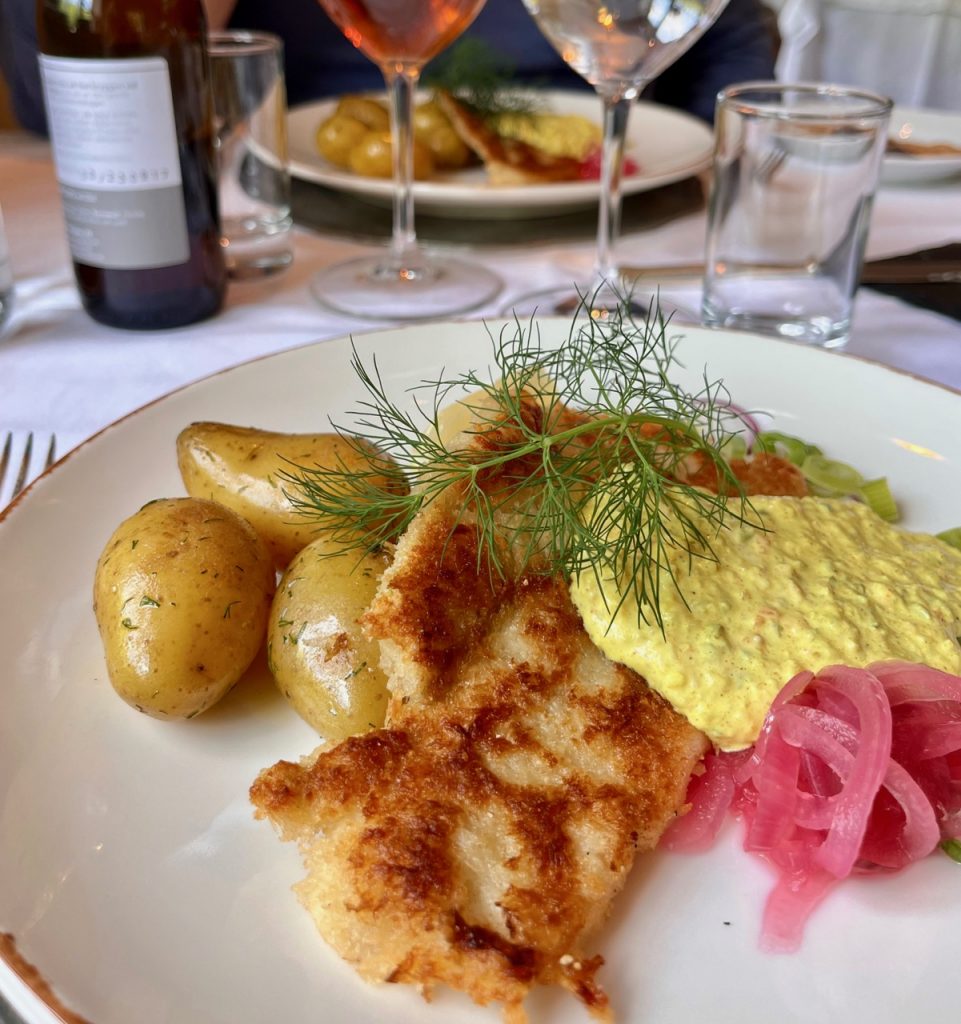
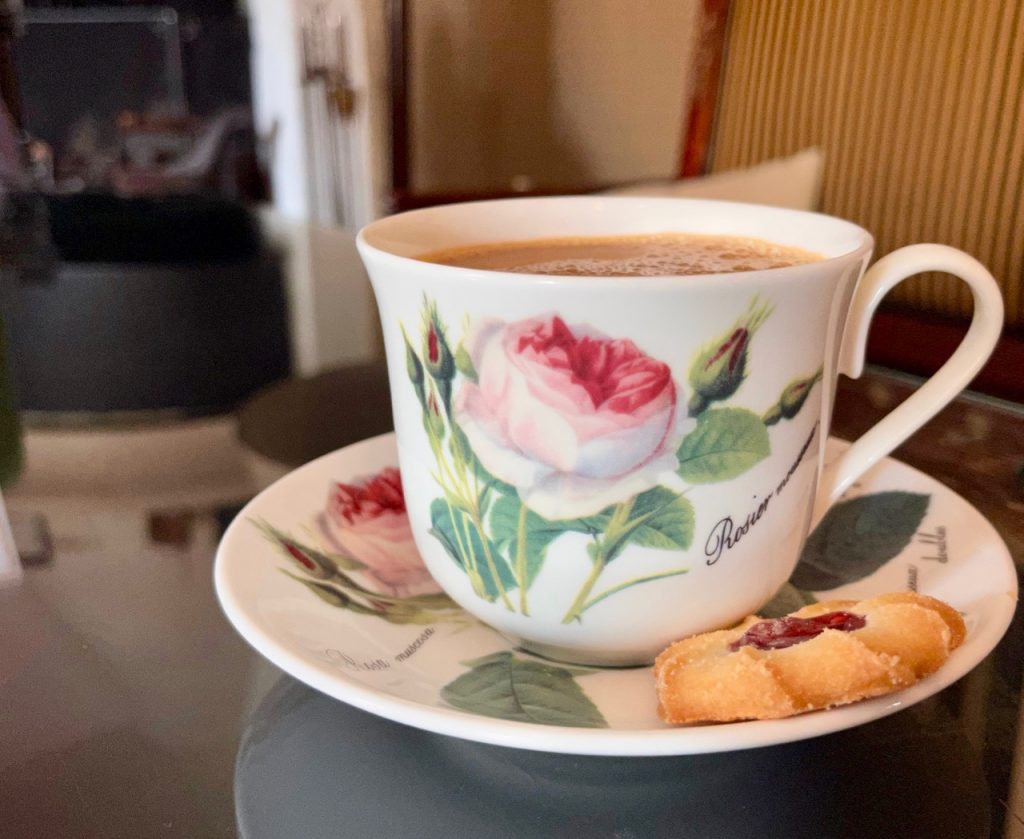
Feeling a tad disconsolate and starving, I once again swerved left at the first hope of food and boy did we hit the jackpot with a charming Herregård (manor house), a set lunch, oodles of charm and exceptional value for money. My mood was transformed before you could say table for two. After a delicious catch of the day with remoulade, pickled onion and new potatoes with dill we paused in the drawing room with an excellent coffee and sweet treat (both included in the price).
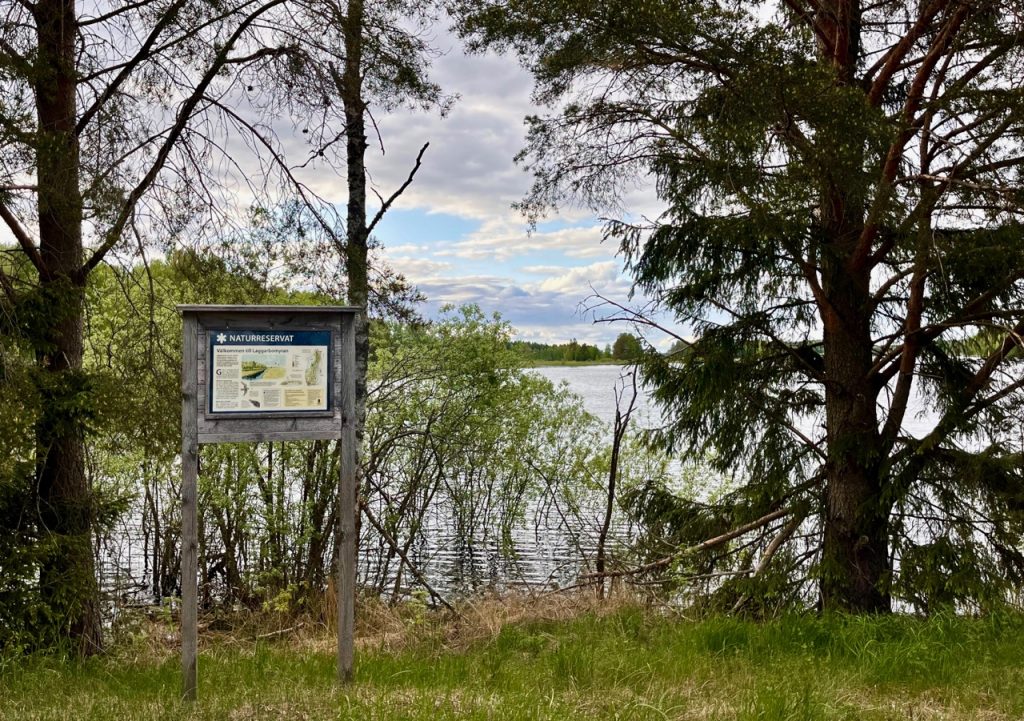
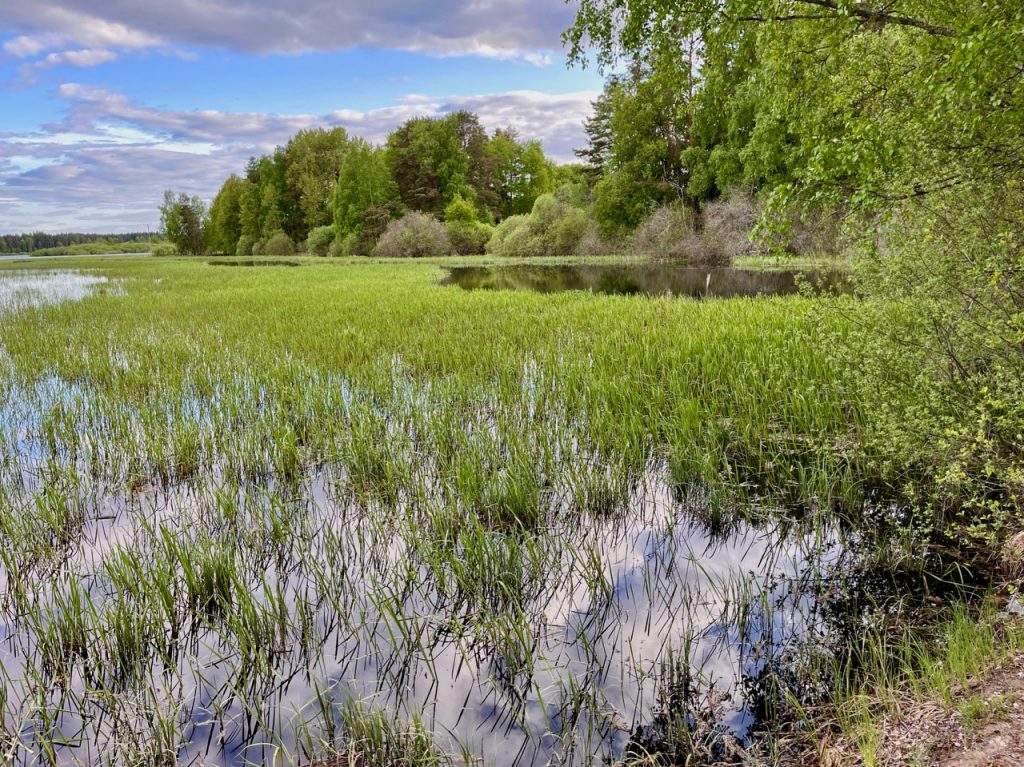
That evening, we took a short drive to a nature reserve Bosse was interested to see. Spread over both banks of the Dala river were hectares of flood plain meadows. This land had once been used as wetland meadows, the bearer of a monumental hay harvest for over-wintering grazers. The landscape was open, birdlife abundant and land used fruitfully. Now, although still a popular place to visit, it is in danger of losing its heart and soul. With no animals grazing nor hay harvested, willows are growing rapidly along the banks, encroaching on the waters, creating a slow strangulation and a mozzie heaven. Bosse anticipated as much however it is important to see and learn that rewilding is not the answer here and land-sharing is far more beneficial to all. We took many photos as a record and managed to outwit most of the mosquitos.
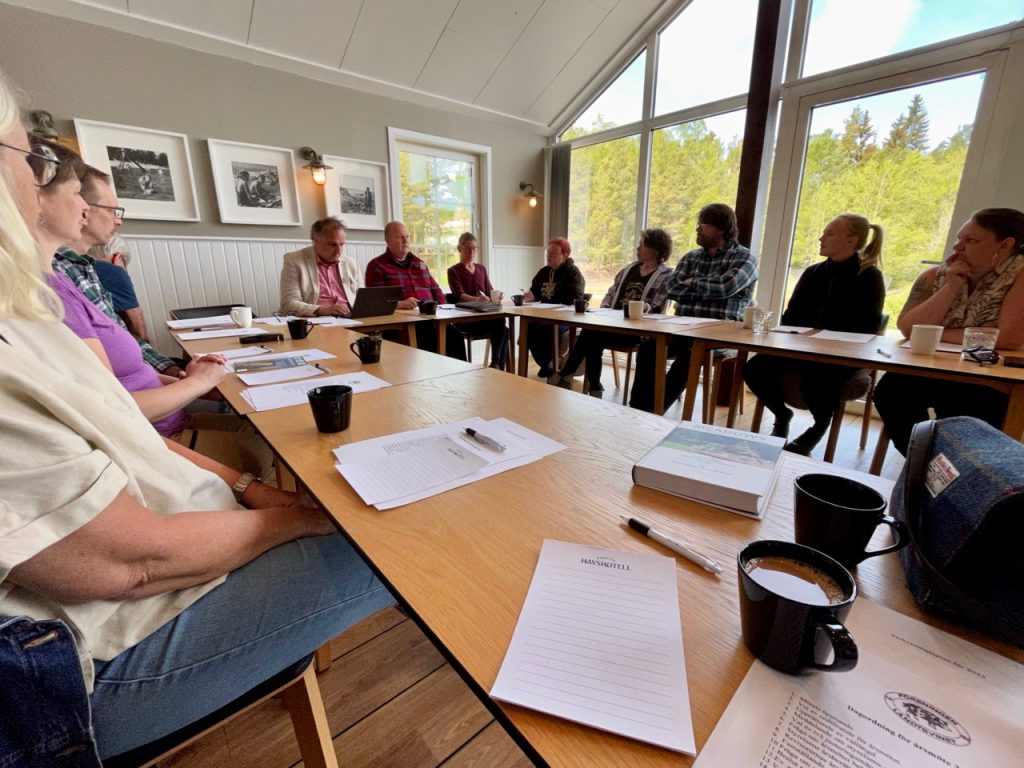
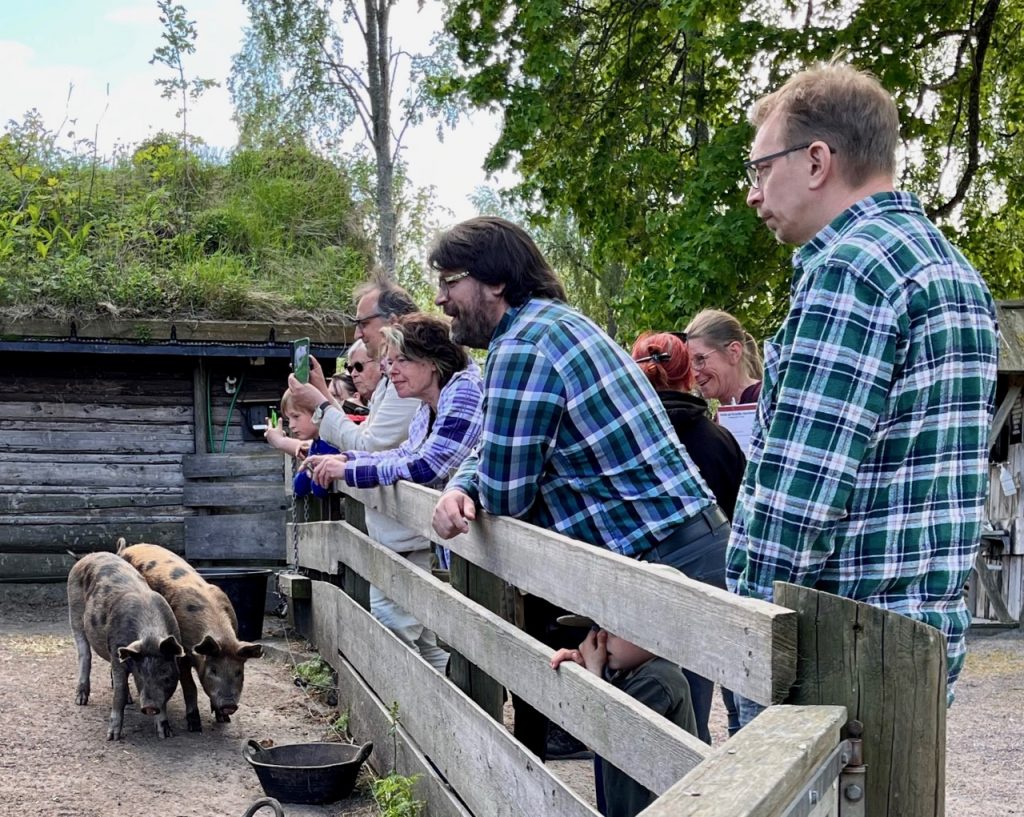
The AGM held at Furuviken was a success followed by a tour of the park including, naturally, their Linderödsvin among the many animals. The Baltic coast was the perfect backdrop to a memorable day.
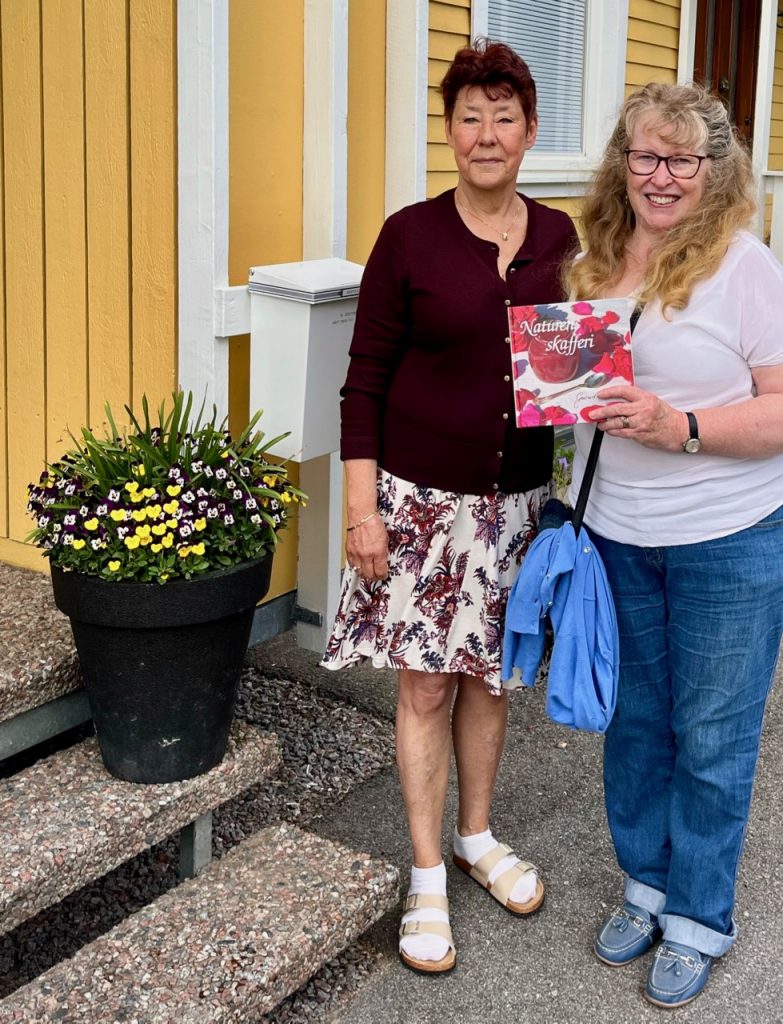
We all stayed in Gävle for a convivial dinner before parting our separate ways after a slow breakfast and we headed for fika with Gertrud, Leader of http://www.slowfoodgastrikland.se where we spent an enjoyable hour discussing food culture before the long journey home to our Småland croft. Gertrud very kindly presented us with a copy of her beautiful book on the local food culture.
Our trip to Sweden had certainly been packed full with family and meetings; sharing good food and conversation; learning and informing, planting vegetables and appreciating the apple blossom and songbirds. I even managed to film my monthly YouTube programme.
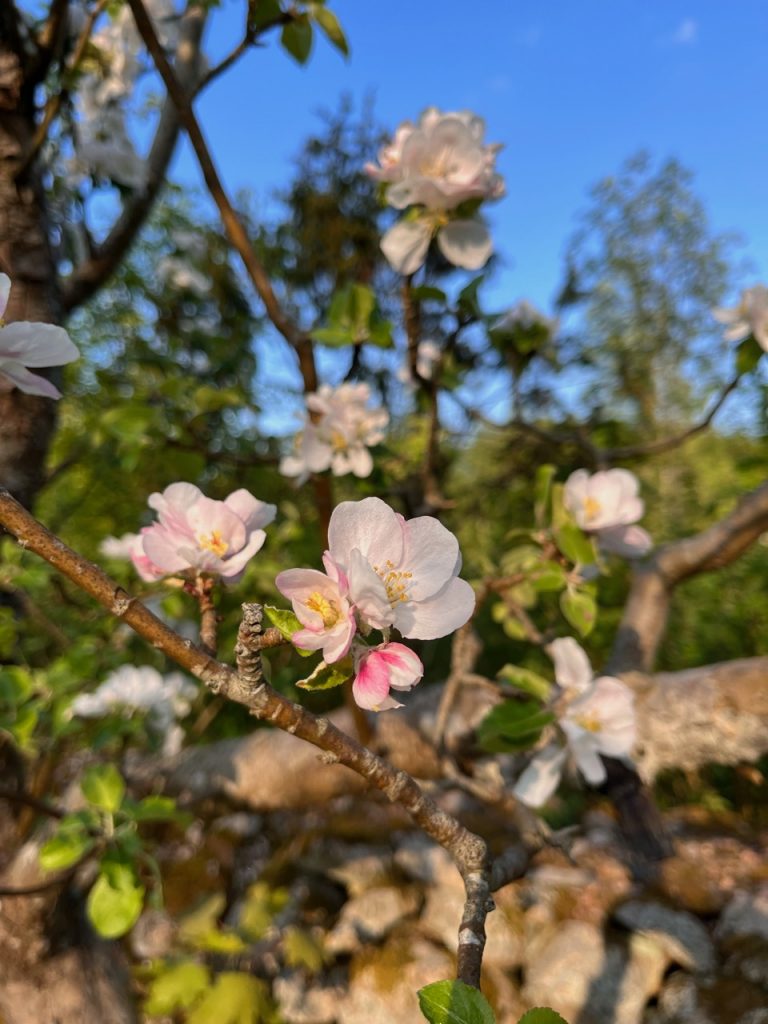
We enjoy driving to Sweden when the days are longer and the weather kind. Not something I would attempt in the colder months. The DFDS Newcastle ferry is immaculate, the food surprisingly good and the crew impressive. The drive through Holland, Germany and Denmark is a story in itself and the number of travellers who wave cheerily at our thistle-emblazoned mini is remarkable. As I offer Scottish Food Guide postcards to interested travellers on the ferry, doing my bit for international promotion, I am warmly received. We even had folk finding Scottish Food Guide on their mobiles and showing us as we all crawled imperceptibly through the predictable Hamburg bottleneck! The bikers were particularly chatty when waiting to board the ferry. We also had fun following, in formation, a dozen or so Harley Davidsons. They would have given Olympic synchronized swimmers a run for their money, and, again, enthusiastic waves when we parted ways.
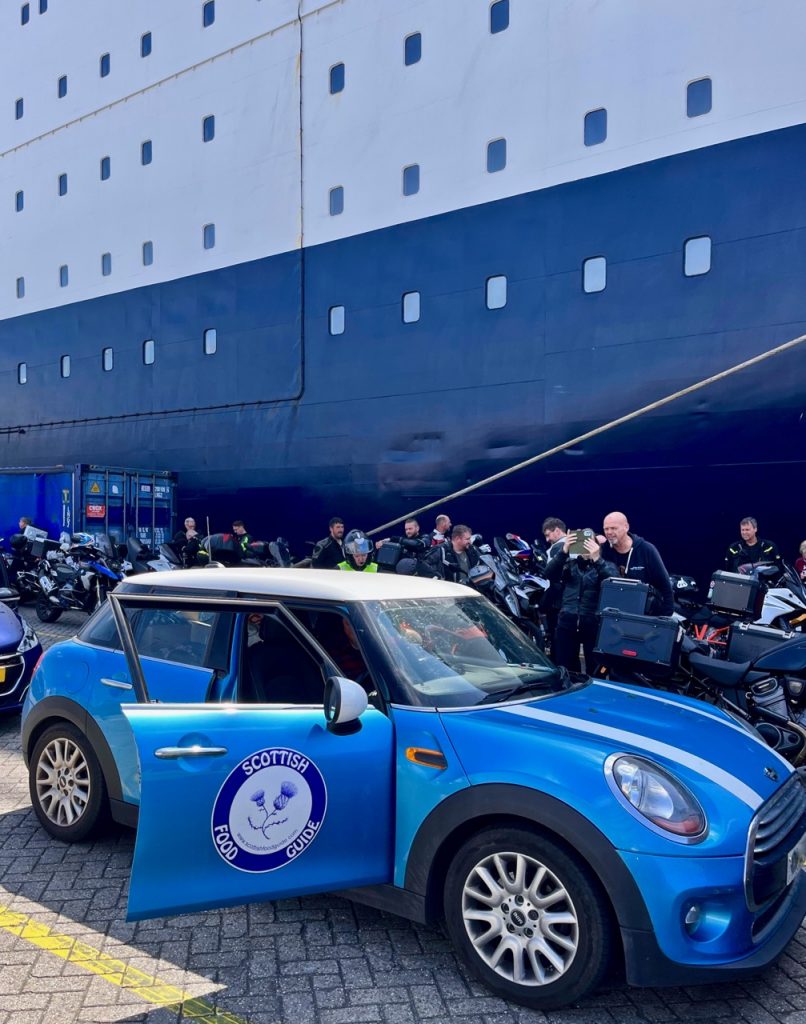
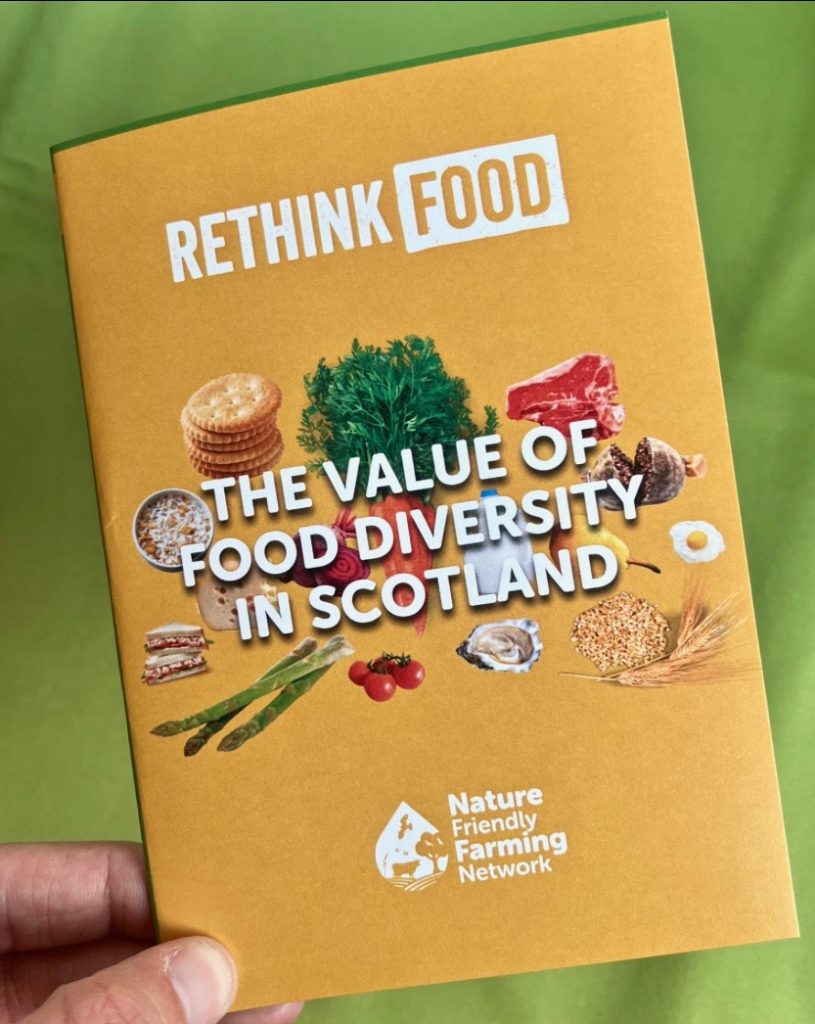
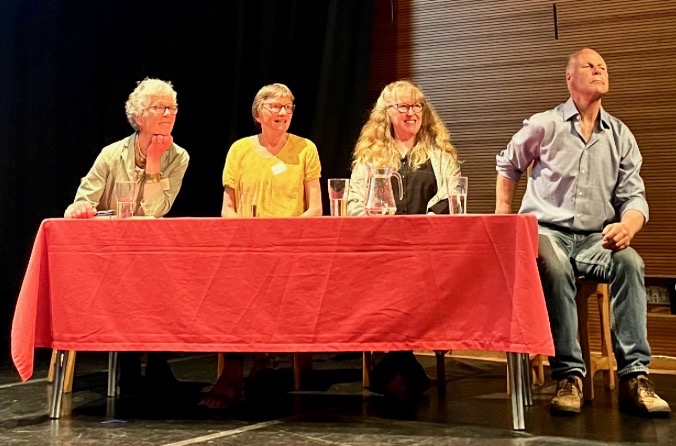
June was a busy month in Scotland with the tourist season well underway, zooms still popular and networking with members. Denise of Peelham Farm and Kirsty Tait organised a Nature Friendly Farming Network event in Edinburgh, bringing together scientists and farmers, cooks and pioneers such as Robin Gourlay. It was a most informative evening and I wish them every success.
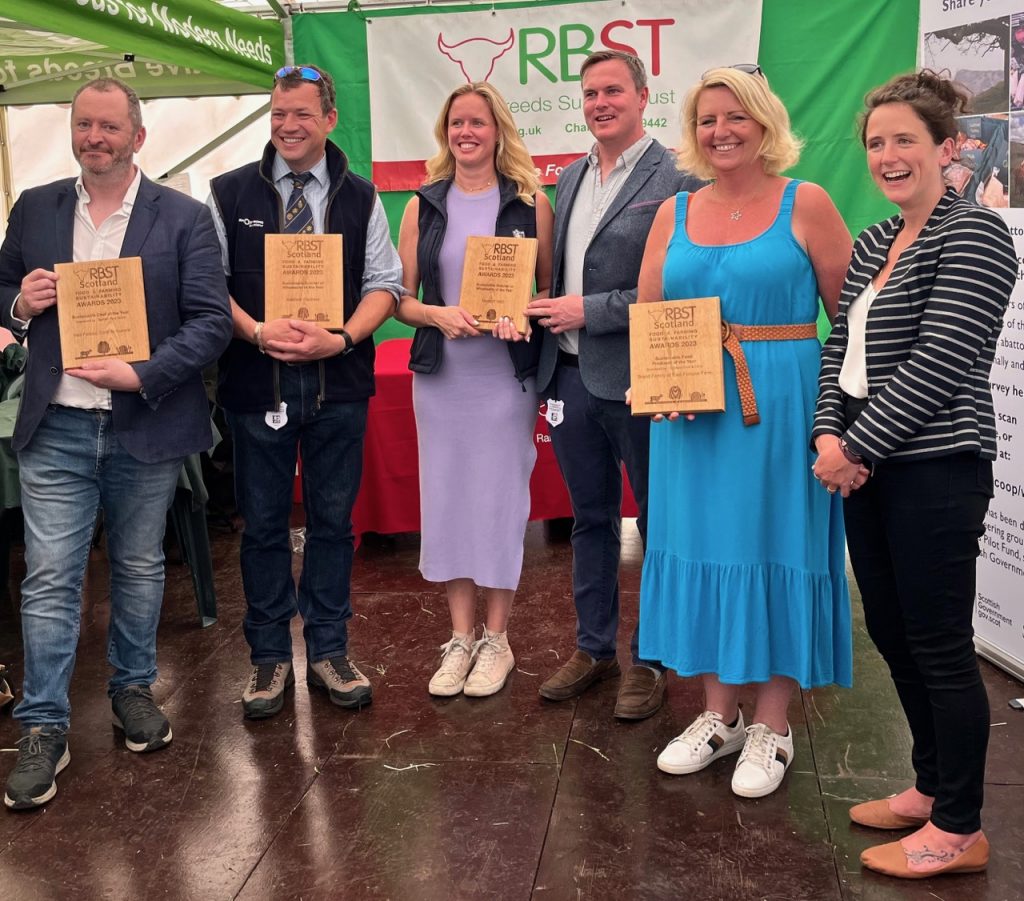
I also took part in a careers day, was speaker at an alumnae lunch, and presented the RBST Sustainable Restaurant Award to Neil Forbes at the Royal Highland Show. My heartfelt congratulations to all the wonderful winners… The Winners of the RBST Scotland Food & Farming Awards 2023 are…
Sustainable Farm of the Year – Hardiesmill
Sustainable Small Farm of the Year – West Mossside Organic Farm
Sustainable Food Producer of the Year – Joint winners
Jane Cooper and the Orkney Boreray Community
Richard Brand & Son, East Fortune Farm
Sustainable Butcher or Wholesaler of the Year – Joint winners
Market of the year – Kelso Farmers Market
Sustainable Produce Retail Outlet of the Year – Thyme Delicatessen and Farm Shop at Errichel
Sustainable Chef of the Year – Neil Forbes, Café St Honore
Sustainable Farming Influencer of the Year – Nikki Yoxall
Native Breed Society of the Year – The Eriskay Pony Society
Rare Breeds Survival Trust Champion of the Year – John Bennett, Brackenbrae (Perthshire
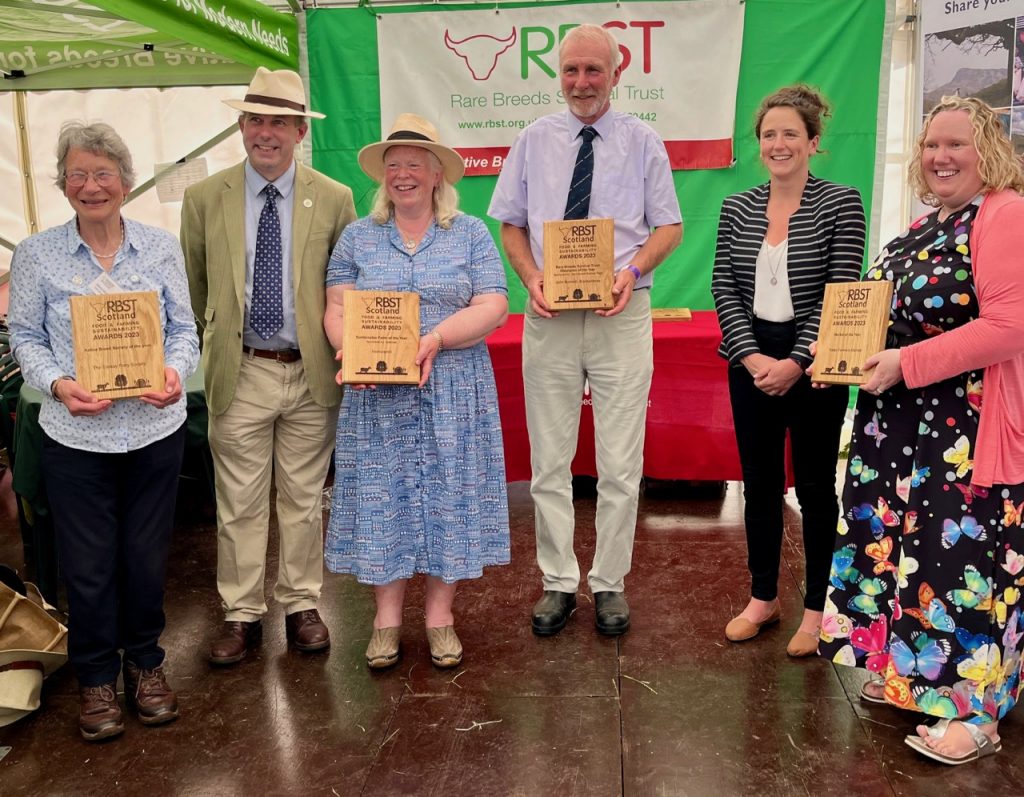
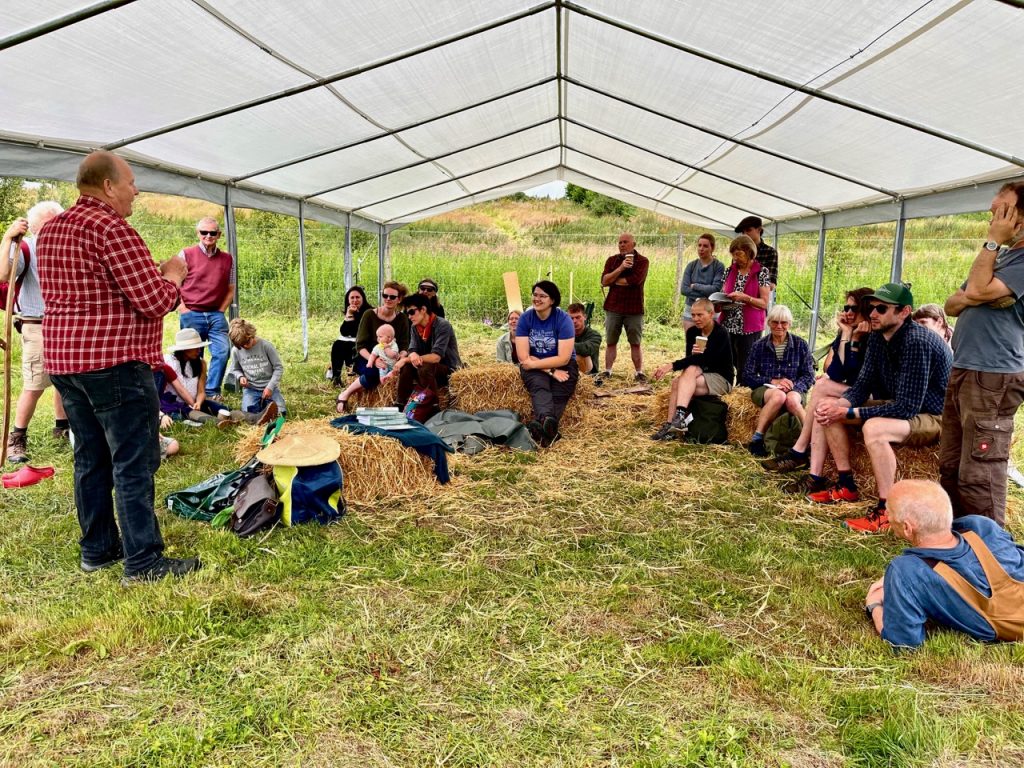
Last but by no means least for this newsletter was the Scottish Scything Festival where we both presented a talk on biodiversity, I had a stand and Bosse demonstrated hayrack-making. We had a great time with a really lovely bunch of folk. The following weekend was GoFalkland with Brand Market the next day so it’s no wonder I am a little late with the June news! I shall be will be out and about all summer around Scotland so do keep in touch with your news.
